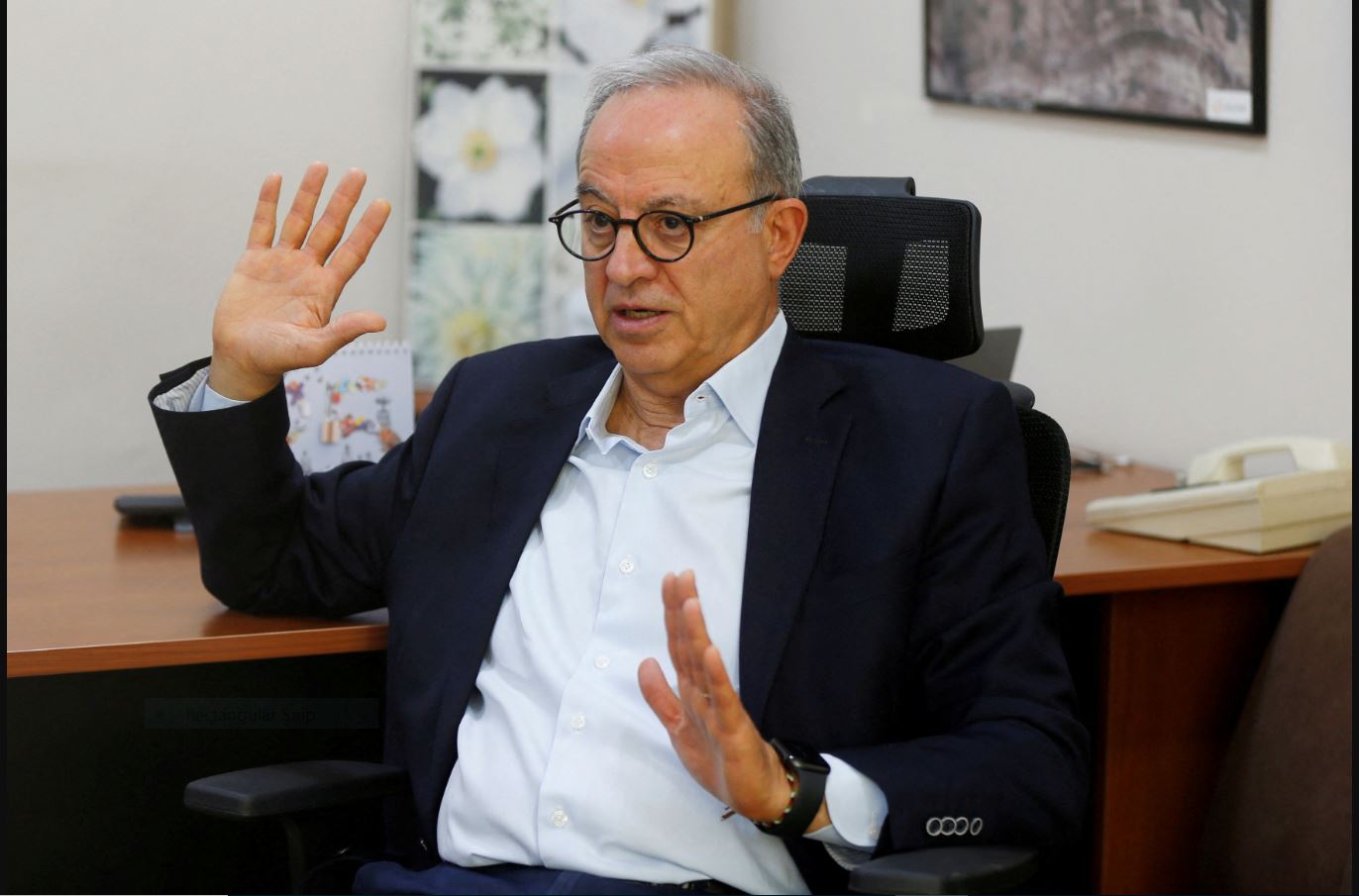Arabs see US as complicit in Israel’s Gaza war – former Jordan envoy Muasher
(Reuters) – Arabs see the United States as complicit in Israel’s war on Gaza for refusing to enforce a ceasefire until Hamas is crushed, an outcome that is far off and may not be possible, Jordan’s former foreign minister said.
“At what point does the international community say enough is enough? We’re already at 10,000 civilian deaths,” Marwan al-Muasher, Vice President for Studies at the Carnegie Endowment for International Peace, said in an interview via Zoom at the Reuters NEXT conference in New York.
A ceasefire between Hamas and Israel must be a top priority because there is no military solution to a conflict that will not be resolved unless Israel ends its occupation of Palestinian territories, he said.
“We have to find a way to have a ceasefire as a first priority, then we need to start dealing with the root-cause of the conflict because if you don’t deal with it, you’re not going to solve anything and the root-cause is the occupation,” said Muasher, who also served as deputy prime minister and as ambassador to the U.S. and to Israel.
“It is the longest occupation in modern history, 56 years old, and unless we…do something serious about it I’m afraid that the cycle of violence is going to continue.”
Israel has launched a ground and air offensive in the Gaza Strip since Hamas gunmen crossed from the densely-populated territory into southern Israel on Oct. 7, killing 1,400 people, mostly civilians, and taking about 240 hostages.
Palestinian officials say the Gaza death toll has passed 10,000 and includes 4,237 children. The violence has fuelled protests abroad over the plight of 2.3 million Gazans trapped in the enclave, many without water, food, medicine or power.
Israeli Prime Minister Benjamin Netanyahu has vowed to wipe out Hamas and rejected appeals for a ceasefire, saying it would strengthen Hamas. Washington has dismissed calls for a ceasefire but says pauses in hostilities are needed to deliver humanitarian aid.
“In my view, the U.S. administration today is being seen by the Arab street as complicit in these killings because the U.S. itself is refusing a ceasefire until they say Hamas is crushed. That is going to take a very long way (time), if (it is) at all possible,” Muasher said.
Mass Transfer
Muasher said the goal of Netanyahu’s far-right government was not to end the occupation or give Palestinians a state as agreed in peace accords 30 years ago.
It wants instead to displace those in Gaza to Egypt’s Sinai border area and eventually those in the Israeli-occupied West Bank to neighbouring Jordan, he said.
Calls for a humanitarian corridor or an escape route for Palestinians from Gaza have drawn warnings from Egypt, Jordan and the Palestinian Authority against a new wave of permanent displacement from land where they want to build a future state.
“If Israel today does not want to end the occupation and establish a Palestinian state — and clearly it doesn’t — and if Israel also does not want a Palestinian majority in areas under its control, the only solution for Israel is to affect a mass transfer of civilians outside the borders it controls,” Muasher said.
“Mass transfer is real and mass transfer looks like the only logical choice to an Israeli government which does not want to end the occupation, that is the tragedy.”
Israel’s aim would not be achieved because the Palestinians had no intention of leaving, Muasher added.
He said Israel could, if it was seriously concerned about civilian casualties, open its borders to allow Gazans to cross to the West Bank. Instead, he said, it wants to “depopulate Palestinian territories from Gaza to Egypt and, in case the conflict escalates, from the West Bank to Jordan.”
Muasher urged the international community to do all it can to secure a permanent ceasefire ahead of any “real initiative to deal with the root cause, which is the end of the occupation.”
He said some leaders, including in Washington, had began talking about a political initiative to resolve the conflict.
Any serious initiative must not repeat the failure of past efforts that produced “an open-ended process that goes nowhere and does not end with the end of the occupation,” he said, referring to the peace process launched three decades ago.
But, Muasher added, there are “serious questions whether Washington is “willing or able to exercise the needed pressure in order to affect a serious political process.”
Cycle Of Violence
Muasher foresaw a continuation of the cycle of violence, with the focus shifting from a two-state solution towards a struggle by Palestinians for equal rights in territories he described as ruled by Israel “in what is an apartheid state”.
Israel has rejected criticism that it has established a system of apartheid, a term used to describe South Africa’s racist policy of white minority rule and segregation in the 20th century.
Israel withdrew soldiers and settlers from Gaza in 2005, but has continued to settle the West Bank. Israel captured the territories in a 1967 war. Palestinians have long sought to establish a state in the Gaza Strip and West Bank with East Jerusalem as its capital.
“If the international community does not get its act together, it will have to deal with not an occupation, but with apartheid,” Muasher said.



